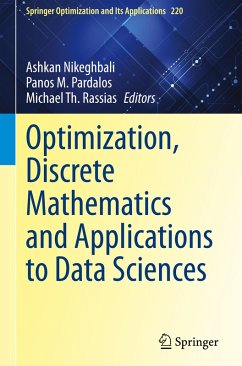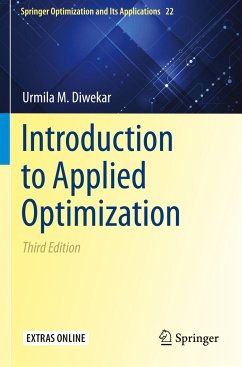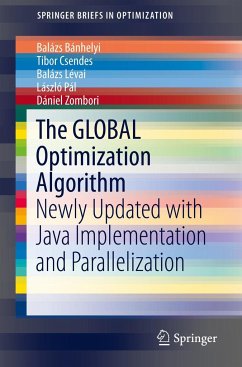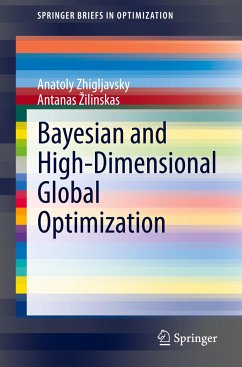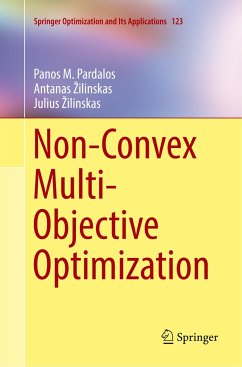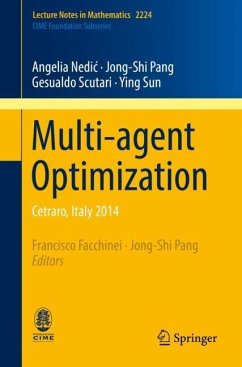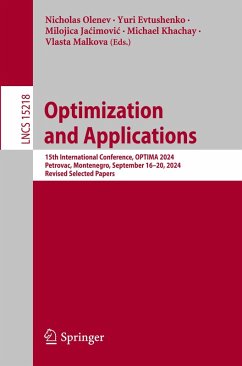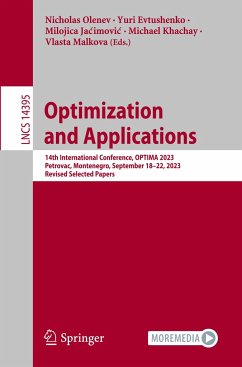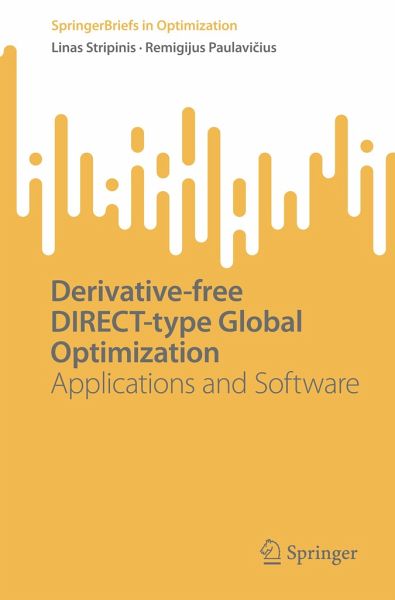
Derivative-free DIRECT-type Global Optimization
Applications and Software

PAYBACK Punkte
17 °P sammeln!
After providing an in-depth introduction to derivative-free global optimization with various constraints, this book presents new original results from well-known experts on the subject. A primary focus of this book is the well-known class of deterministic DIRECT (DIviding RECTangle)-type algorithms. This book describes a new set of algorithms derived from newly developed partitioning, sampling, and selection approaches in the box- and generally-constrained global optimization, including extensions to multi-objective optimization. DIRECT-type optimization algorithms are discussed in terms of fu...
After providing an in-depth introduction to derivative-free global optimization with various constraints, this book presents new original results from well-known experts on the subject. A primary focus of this book is the well-known class of deterministic DIRECT (DIviding RECTangle)-type algorithms. This book describes a new set of algorithms derived from newly developed partitioning, sampling, and selection approaches in the box- and generally-constrained global optimization, including extensions to multi-objective optimization. DIRECT-type optimization algorithms are discussed in terms of fundamental principles, potential, and boundaries of their applicability. The algorithms are analyzed from various perspectives to offer insight into their main features. This explains how and why they are effective at solving optimization problems. As part of this book, the authors also present several techniques for accelerating the DIRECT-type algorithms through parallelization and implementing efficient data structures by revealing the pros and cons of the design challenges involved. A collection of DIRECT-type algorithms described and analyzed in this book is available in DIRECTGO, a MATLAB toolbox on GitHub. Lastly, the authors demonstrate the performance of the algorithms for solving a wide range of global optimization problems with various constraints ranging from a few to hundreds of variables.
Additionally, well-known practical problems from the literature are used to demonstrate the effectiveness of the developed algorithms. It is evident from these numerical results that the newly developed approaches are capable of solving problems with a wide variety of structures and complexity levels.
Since implementations of the algorithms are publicly available, this monograph is full of examples showing how to use them and how to choose the most efficient ones, depending on the nature of the problem being solved. Therefore, many specialists, students, researchers, engineers, economists, computer scientists, operations researchers, and others will find this book interesting and helpful.
Additionally, well-known practical problems from the literature are used to demonstrate the effectiveness of the developed algorithms. It is evident from these numerical results that the newly developed approaches are capable of solving problems with a wide variety of structures and complexity levels.
Since implementations of the algorithms are publicly available, this monograph is full of examples showing how to use them and how to choose the most efficient ones, depending on the nature of the problem being solved. Therefore, many specialists, students, researchers, engineers, economists, computer scientists, operations researchers, and others will find this book interesting and helpful.





